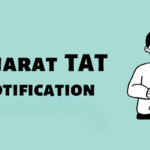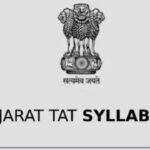Table of Contents :
- Introduction to Heart Diseases
- The Importance of Heart Health
- Understanding Heart Diseases
- Common Types of Heart Diseases
- Coronary Artery Disease (CAD)
- Heart Attack (Myocardial Infarction)
- Heart Failure
- Arrhythmias
- Valvular Heart Diseases
- Congenital Heart Diseases
- Symptoms and Warning Signs
- Chest Pain or Discomfort
- Shortness of Breath
- Fatigue and Weakness
- Irregular Heartbeat
- Swelling in Legs, Ankles, and Feet
- Dizziness and Fainting
- Causes and Risk Factors
- Atherosclerosis and Plaque Buildup
- High Blood Pressure
- Diabetes
- High Cholesterol
- Smoking and Tobacco Use
- Obesity
- Family History
- Medical Treatment Options
- Medications for Heart Diseases
- Angioplasty and Stent Placement
- Coronary Artery Bypass Surgery
- Heart Transplantation
- Pacemaker and Defibrillator Implantation
- Ayurvedic Approaches to Heart Health
- Herbal Remedies for Cardiovascular Wellness
- Lifestyle Modifications According to Ayurveda
- Stress Management Techniques
- Diet for a Healthy Heart
- Heart-Friendly Foods: Fruits, Vegetables, Whole Grains
- Importance of Omega-3 Fatty Acids
- Reducing Sodium Intake
- Limiting Saturated and Trans Fats
- Exercise and Yoga for Heart Health
- Cardiovascular Exercise: Aerobics, Walking, Cycling
- Benefits of Regular Physical Activity
- Yoga Poses for Heart Health
- Stress-Relief Through Yoga and Meditation
- Preventive Measures
- Regular Health Check-ups
- Quitting Smoking and Tobacco
- Managing Blood Pressure, Cholesterol, and Diabetes
- Maintaining a Healthy Weight
- Conclusion
- Empowering Yourself for Heart Health
- A Holistic Approach to Preventing Heart Diseases
Introduction to Heart Diseases: Understanding the Importance of Heart Health
The heart, that remarkable organ responsible for pumping blood throughout our bodies, plays a pivotal role in sustaining our lives. Unfortunately, heart diseases have become a widespread concern, impacting millions of individuals globally. Understanding the intricacies of heart health, the various types of heart diseases, their causes, symptoms, and potential treatments is essential for safeguarding our overall well-being.

The Importance of Heart Health: Beyond a Pumping Organ
The heart is often symbolized as the seat of emotions, but its significance goes far beyond sentimental associations. It’s a muscular organ, approximately the size of a fist, that serves as the engine of our circulatory system. Through a network of blood vessels, the heart transports oxygen, nutrients, hormones, and immune cells to different parts of the body while removing waste products. This intricate system ensures the proper functioning of all bodily tissues and organs.
Maintaining a healthy heart is crucial because heart diseases can have severe consequences. They can lead to reduced quality of life, increased healthcare costs, and even premature death. Many heart diseases are preventable, making lifestyle choices and early detection essential in mitigating risks.
Common Types of Heart Diseases :
A. Coronary Artery Disease (CAD):
- Symptoms: Chest pain or discomfort (angina), shortness of breath, fatigue, weakness, nausea.
- Cause: Accumulation of plaque in coronary arteries, restricting blood flow and oxygen supply to the heart.
- Diagnostic Tests: Electrocardiogram (ECG), stress tests, angiography.
- Ayurvedic Approach: Herbal remedies like arjuna, guggul, and garlic; stress reduction through yoga and meditation.
- Medical Treatment: Medications (statins, aspirin, beta-blockers), lifestyle changes (healthy diet, exercise), angioplasty, bypass surgery.
- Facts: CAD can lead to heart attack if not managed; it’s a major cause of mortality globally.
B. Heart Attack (Myocardial Infarction):

- Symptoms: Severe chest pain, pain radiating to arm, neck, jaw; nausea, vomiting, cold sweats.
- Cause: Blocked blood flow to heart muscle due to blood clot in coronary artery.
- Diagnostic Tests: ECG, blood tests (troponin levels), coronary angiography.
- Ayurvedic Approach: Focus on stress management, herbal remedies like arjuna and brahmi, dietary changes.
- Medical Treatment: Emergency medical care to restore blood flow, medications (antiplatelets, beta-blockers), cardiac rehabilitation.
- Facts: Prompt treatment is critical to minimize heart muscle damage; heart attack risk factors include smoking, obesity, and diabetes.
C. Heart Failure:

- Symptoms: Fatigue, shortness of breath, swelling in legs and ankles, rapid heartbeat.
- Cause: Weak or damaged heart muscle, often due to coronary artery disease or high blood pressure.
- Diagnostic Tests: Echocardiogram, BNP blood test, stress test.
- Ayurvedic Approach: Diet modifications, herbal remedies like arjuna, gokshura, and ashwagandha, stress reduction.
- Medical Treatment: Medications (diuretics, ACE inhibitors, beta-blockers), implantable devices (pacemaker, defibrillator), heart transplant.
- Facts: Heart failure requires lifelong management; lifestyle changes can improve quality of life.
D. Arrhythmias:
- Symptoms: Palpitations, racing or irregular heartbeat, dizziness, fainting.
- Cause: Electrical signals in heart become abnormal, often due to heart disease, high blood pressure, or electrolyte imbalances.
- Diagnostic Tests: ECG, Holter monitor, electrophysiological studies.
- Ayurvedic Approach: Herbal remedies like arjuna, brahmi, and ashwagandha; stress management.
- Medical Treatment: Medications (anti-arrhythmics), catheter ablation, pacemaker, defibrillator.
- Facts: Some arrhythmias are harmless, while others need intervention; untreated arrhythmias can lead to stroke or heart failure.

E. Valvular Heart Diseases:
- Symptoms: Fatigue, shortness of breath, chest pain, palpitations.
- Cause: Damage to heart valves due to infections, congenital defects, or aging.
- Diagnostic Tests: Echocardiogram, cardiac MRI, cardiac catheterization.
- Ayurvedic Approach: Lifestyle changes, herbal remedies like arjuna and guggul, stress reduction.
- Medical Treatment: Medications (diuretics, blood thinners), valve repair or replacement surgery.
- Facts: Proper management can prevent complications like heart failure or stroke; regular check-ups are crucial.
F. Congenital Heart Diseases:
- Symptoms: Vary depending on defect, may include cyanosis (blue skin), poor growth, fatigue.
- Cause: Structural heart abnormalities present at birth due to genetic factors or environmental influences.
- Diagnostic Tests: Echocardiogram, chest X-ray, cardiac catheterization.
- Ayurvedic Approach: Depending on defect, herbal remedies and lifestyle changes for symptom management.
- Medical Treatment: Depending on severity, medications, catheter-based procedures, or surgery.
- Facts: Early detection and treatment in childhood are essential; some defects require lifelong management.
Each type of heart disease presents distinct challenges and requires tailored approaches for diagnosis and management. Collaborating with healthcare professionals and following personalized treatment plans are crucial for achieving better heart health outcomes.
Risk Factors for Heart Diseases :

1. Atherosclerosis and Plaque Buildup:
- Description: Accumulation of fatty deposits (plaque) in arteries, leading to narrowing and reduced blood flow.
- Connection to Heart Diseases: Plaque buildup can restrict blood flow to the heart, causing angina, heart attack, or stroke.
- Facts: Atherosclerosis is a gradual process that can start in childhood; lifestyle changes can help prevent or manage it.
2. High Blood Pressure (Hypertension):
- Description: Elevated force of blood against artery walls.
- Connection to Heart Diseases: High blood pressure strains the heart and arteries, increasing the risk of heart attack, stroke, and heart failure.
- Facts: Often called the “silent killer,” hypertension may have no symptoms; regular monitoring is crucial.
3. Diabetes :
- Description: High blood sugar levels due to inadequate insulin production or utilization.
- Connection to Heart Diseases: Diabetes increases the risk of heart disease by damaging blood vessels and promoting atherosclerosis.
- Facts: People with diabetes are 2-4 times more likely to have heart disease; managing blood sugar is essential.
4. High Cholesterol:
- Description: Elevated levels of cholesterol, including LDL (“bad”) cholesterol.
- Connection to Heart Diseases: High LDL cholesterol contributes to plaque buildup in arteries, increasing heart disease risk.
- Facts: High cholesterol often has no symptoms; a healthy diet and medication can help manage levels.
5. Smoking and Tobacco Use:
- Description: Inhaling toxic chemicals from tobacco products.
- Connection to Heart Diseases: Smoking damages blood vessels, reduces oxygen supply, and increases the risk of heart attack and stroke.
- Facts: Smoking is a major cause of heart disease; quitting significantly improves cardiovascular health.
6. Obesity:
- Description: Excessive body weight, often indicated by high BMI.
- Connection to Heart Diseases: Obesity increases the risk of heart disease by contributing to hypertension, diabetes, and atherosclerosis.
- Facts: Losing even a small amount of weight can improve heart health; a balanced diet and regular exercise are key.
7. Family History:
- Description: Genetic predisposition to heart diseases due to family history.
- Connection to Heart Diseases: Having a close family member with heart disease increases your risk.
- Facts: Family history is an important risk factor, but a healthy lifestyle can still mitigate the risk.
Understanding and managing these risk factors can play a crucial role in preventing heart diseases. Many of these factors are interconnected, and addressing one can positively impact others. Regular medical check-ups, adopting a heart-healthy lifestyle, and following medical advice are essential steps in maintaining cardiovascular health.
Medical Treatment Options for Heart Diseases :

1. Medications for Heart Diseases:
- Description: Various medications target different aspects of heart diseases, such as blood pressure, cholesterol, and heart rhythm.
- Purpose: Medications help control risk factors, alleviate symptoms, and improve heart function.
- Facts: Common medications include statins, beta-blockers, ACE inhibitors, and antiplatelet drugs.
- Diagnosis: Based on medical history, risk factors, and diagnostic tests (e.g., blood tests, imaging, ECG).
2. Angioplasty and Stent Placement:
- Description: Angioplasty involves inflating a balloon in a narrowed artery to widen it, often accompanied by stent placement to keep the artery open.
- Purpose: Restores blood flow in blocked or narrowed coronary arteries, improving blood supply to the heart muscle.
- Facts: Minimally invasive procedure; reduces chest pain and risk of heart attack.
- Diagnosis: Based on symptoms, stress tests, and coronary angiography (imaging of coronary arteries).
3. Coronary Artery Bypass Surgery:
- Description: Surgeon grafts healthy blood vessels to bypass blocked coronary arteries, creating new pathways for blood flow.
- Purpose: Restores blood flow to the heart muscle, often used for severe coronary artery disease.
- Facts: Major surgery requiring hospitalization; effective for long-term relief from angina.
- Diagnosis: Based on symptoms, stress tests, and coronary angiography.
4. Heart Transplantation:
- Description: Surgical procedure replacing a failing heart with a healthy donor heart.
- Purpose: Treats end-stage heart failure when other treatments are ineffective.
- Facts: Limited availability of donor hearts; candidates undergo thorough evaluation.
- Diagnosis: Based on advanced heart failure symptoms, assessment of heart function, and eligibility criteria.
5. Pacemaker and Defibrillator Implantation:
- Description: Pacemakers regulate heart rhythm by sending electrical signals; defibrillators deliver shocks to restore normal rhythm.
- Purpose: Manage irregular heartbeats (arrhythmias) and prevent sudden cardiac arrest.
- Facts: Implantation involves a minor surgical procedure; improves quality of life for those with arrhythmias.
- Diagnosis: Based on symptoms, ECG recordings, and electrophysiological studies.
Choosing the best treatment option depends on factors such as the specific heart condition, the patient’s overall health, the severity of the disease, and the preferences of the patient and their healthcare team. Consulting with a qualified cardiologist is essential to receive proper diagnosis and personalized treatment recommendations.
Ayurvedic Approaches to Heart Health :

1. Herbal Remedies for Cardiovascular Wellness:
- Description: Ayurveda emphasizes the use of specific herbs and herbal formulations to support heart health.
- Purpose: Promotes heart function, reduces inflammation, and supports overall cardiovascular wellness.
- Facts: Common Ayurvedic herbs include Arjuna, Ashwagandha, Garlic, and Triphala.
- Diagnosis: Based on Ayurvedic constitution assessment (Dosha) and consultation with Ayurvedic practitioners.
2. Lifestyle Modifications According to Ayurveda:
- Description: Ayurveda emphasizes a balanced lifestyle with focus on diet, exercise, and daily routines.
- Purpose: Maintains heart health by harmonizing body and mind.
- Facts: Emphasizes consuming heart-healthy foods, practicing mindfulness, and promoting balance.
- Diagnosis: Based on individual Dosha, health assessment, and consultation with Ayurvedic experts.
3. Stress Management Techniques:
- Description: Ayurveda promotes stress reduction to prevent heart disease, as stress can impact heart health.
- Purpose: Manages stress through relaxation techniques, meditation, and mindfulness practices.
- Facts: Stress management aids in maintaining healthy blood pressure and reducing risk factors.
- Diagnosis: Based on lifestyle assessment, stress levels, and consultation with Ayurvedic practitioners.
Ayurvedic approaches to heart health are holistic and personalized, focusing on the individual’s constitution, imbalances, and overall well-being. It’s important to consult with a qualified Ayurvedic practitioner who can provide guidance on herbal remedies, lifestyle adjustments, and stress management techniques tailored to your unique needs. Integrating Ayurvedic principles into your heart care regimen can contribute to enhanced cardiovascular wellness.
Diet for a Healthy Heart :
Maintaining a heart-healthy diet is a fundamental aspect of preventing heart diseases and promoting overall cardiovascular wellness. The foods you choose to consume can have a significant impact on factors such as cholesterol levels, blood pressure, inflammation, and the overall health of your heart.

1. Heart-Friendly Foods: Fruits, Vegetables, Whole Grains
- Description: A heart-healthy diet emphasizes the inclusion of a wide variety of colorful fruits, vegetables, and whole grains.
- Purpose: These foods are rich in essential vitamins, minerals, antioxidants, and dietary fiber, all of which contribute to reducing inflammation and supporting optimal heart function.
- Facts: Berries, such as blueberries and strawberries, are particularly beneficial due to their high content of antioxidants that protect heart cells from damage. Leafy greens like spinach and kale provide vitamins A and K, which play roles in heart health and blood clotting. Whole grains like oats, brown rice, quinoa, and whole wheat provide fiber that aids in lowering cholesterol levels and maintaining stable blood sugar.
- Benefits: Incorporating these foods into your diet can help lower the risk of heart disease, improve cholesterol levels, regulate blood pressure, and enhance overall cardiovascular health.
2. Importance of Omega-3 Fatty Acids
- Description: Omega-3 fatty acids are essential fats that have been shown to provide numerous heart health benefits.
- Purpose: Omega-3s play a crucial role in heart rhythm regulation, reducing inflammation, and maintaining the health of blood vessels.
- Facts: Fatty fish such as salmon, mackerel, and trout are excellent sources of omega-3s, specifically eicosapentaenoic acid (EPA) and docosahexaenoic acid (DHA). Plant-based sources of omega-3s include flaxseeds, chia seeds, walnuts, and canola oil.
- Benefits: Regular consumption of omega-3-rich foods can lower the risk of arrhythmias (abnormal heart rhythms), improve triglyceride levels, reduce inflammation, and promote overall heart health.
3. Reducing Sodium Intake
- Description: Excessive sodium intake can contribute to high blood pressure, a major risk factor for heart disease.
- Purpose: Lowering sodium consumption is essential for maintaining healthy blood pressure levels and reducing the strain on the heart.
- Facts: Processed foods, canned soups, salty snacks, and restaurant meals are often high in sodium. Sodium is hidden in many packaged and convenience foods, even those that don’t taste salty.
- Benefits: By reducing sodium intake, you can prevent hypertension (high blood pressure) and decrease the risk of heart disease and stroke.
4. Limiting Saturated and Trans Fats
- Description: Saturated and trans fats are unhealthy fats that can raise LDL cholesterol levels and contribute to the development of heart disease.
- Purpose: Minimizing the intake of these fats is essential for maintaining healthy cholesterol levels and heart health.
- Facts: Saturated fats are found in fatty cuts of meat, full-fat dairy products, butter, and certain oils like coconut and palm oil. Trans fats are commonly found in fried foods, processed snacks, certain margarines, and baked goods made with partially hydrogenated oils.
- Benefits: Reducing the consumption of saturated and trans fats can lead to improved cholesterol profiles, reduced risk of atherosclerosis (narrowing of arteries), and better cardiovascular outcomes.
By adopting a diet rich in heart-healthy foods, prioritizing omega-3 fatty acids, moderating sodium intake, and minimizing saturated and trans fats, you can support your heart’s health and well-being. Remember that a balanced and nutritious diet, along with regular physical activity, forms the foundation of a healthy lifestyle that promotes optimal cardiovascular function.
Exercise and Yoga for Heart Health :
Maintaining a healthy heart involves more than just a balanced diet; regular physical activity and stress management are also vital components of a heart-healthy lifestyle. Engaging in cardiovascular exercises, practicing yoga, and incorporating stress-relief techniques can significantly contribute to the well-being of your heart.

Cardiovascular Exercise: Aerobics, Walking, Cycling
- Description: Cardiovascular exercises, also known as aerobic exercises, elevate your heart rate and improve overall cardiovascular fitness.
- Purpose: These exercises strengthen the heart, enhance lung function, and promote efficient oxygen delivery to the body’s tissues.
- Benefits: Regular cardiovascular exercise can lower the risk of heart disease, help maintain healthy blood pressure levels, improve cholesterol profiles, and support weight management.
Benefits of Regular Physical Activity
- Description: Engaging in regular physical activity offers numerous benefits for heart health and overall well-being.
- Purpose: Physical activity helps maintain healthy blood pressure, manage weight, control blood sugar levels, and reduce stress.
- Facts: Just 30 minutes of moderate-intensity exercise most days of the week can lead to substantial cardiovascular benefits.
- Benefits: Regular physical activity supports heart health by reducing the risk of heart disease, improving circulation, boosting energy levels, and enhancing mood.
Yoga Poses for Heart Health
- Description: Yoga is a mind-body practice that combines physical postures, breathing techniques, and meditation.
- Purpose: Certain yoga poses promote heart health by enhancing flexibility, circulation, and relaxation.
- Facts: Poses like “Cobra Pose” (Bhujangasana), “Bridge Pose” (Setu Bandhasana), and “Camel Pose” (Ustrasana) can improve blood flow to the heart and help manage stress.
- Benefits: Regular practice of heart-focused yoga poses can aid in reducing blood pressure, calming the nervous system, and supporting overall cardiovascular wellness.
Stress-Relief Through Yoga and Meditation
- Description: Chronic stress can negatively impact heart health; yoga and meditation are effective stress-reduction tools.
- Purpose: Yoga and meditation techniques help regulate the body’s stress response, reducing the risk of stress-related heart issues.
- Facts: Mindfulness meditation, deep breathing exercises, and relaxation techniques can significantly alleviate stress.
- Benefits: Practicing yoga and meditation can lower blood pressure, improve emotional well-being, and enhance overall heart health.
Preventive Measures :
- Regular Health Check-ups: Regular medical check-ups can help identify risk factors and address potential heart issues early.
- Quitting Smoking and Tobacco: Smoking significantly increases the risk of heart disease and other cardiovascular conditions.
- Managing Blood Pressure, Cholesterol, and Diabetes: Proper management of these conditions is crucial for heart health.
- Maintaining a Healthy Weight: A healthy weight reduces the strain on the heart and lowers the risk of heart diseases.
Conclusion :
Taking a holistic approach to heart health involves integrating regular cardiovascular exercises, practicing heart-focused yoga, and adopting stress-reduction techniques into your routine. These lifestyle choices, combined with a heart-healthy diet, contribute to the prevention of heart diseases and the promotion of overall well-being. Remember, by prioritizing your heart’s health, you’re empowering yourself to lead a vibrant and heart-fulfilling life.





